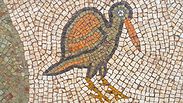
Marble and mosaics: Byzantine church is opulent tribute to 'glorious martyr'
It is unclear to whom the recently uncovered 1,500-year-old structure near Jerusalem is dedicated, but its size and rich trappings lead archaeologists believe it was a popular pilgrimage site until it was abandoned in the 9th century CE
The Israel Antiquities Authority showcased some of the finds from the nearly 1,500-year-old structure, whose compound covers around one third of an acre, after three years of excavations. The findings will be exhibited at Jerusalem’s Bible Lands Museum.
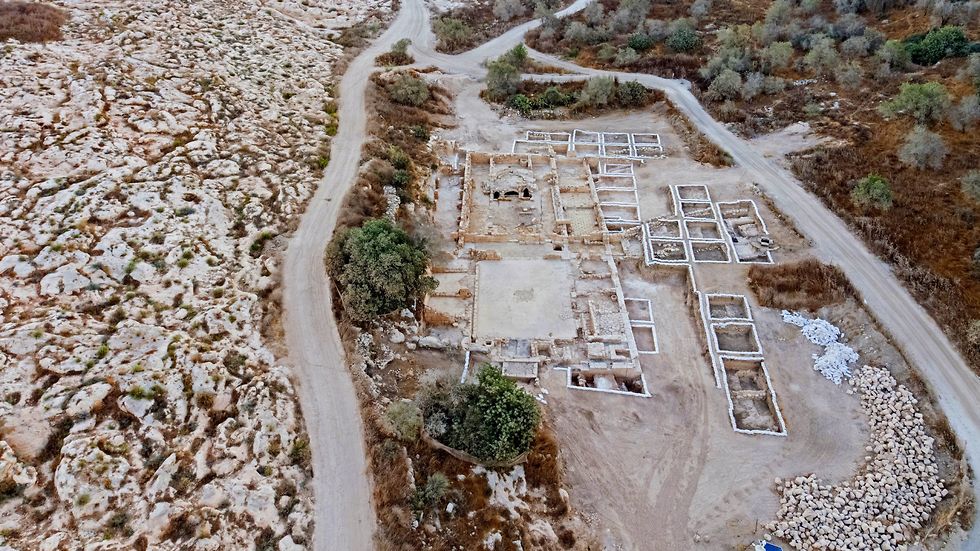
An inscription on a mosaic says the site was built in honor of a “glorious martyr.” The martyr is not identified, but other inscriptions commemorate the empire’s expansion under the sixth-century ruler Justinian and one of his successors, Tiberius II Constantine.
Because of the church’s size and rich trappings, archaeologists from the Israel Antiquities Authority believe it was a popular pilgrimage site until it was abandoned during the Muslim Abbasid caliphate in the 9th century CE.
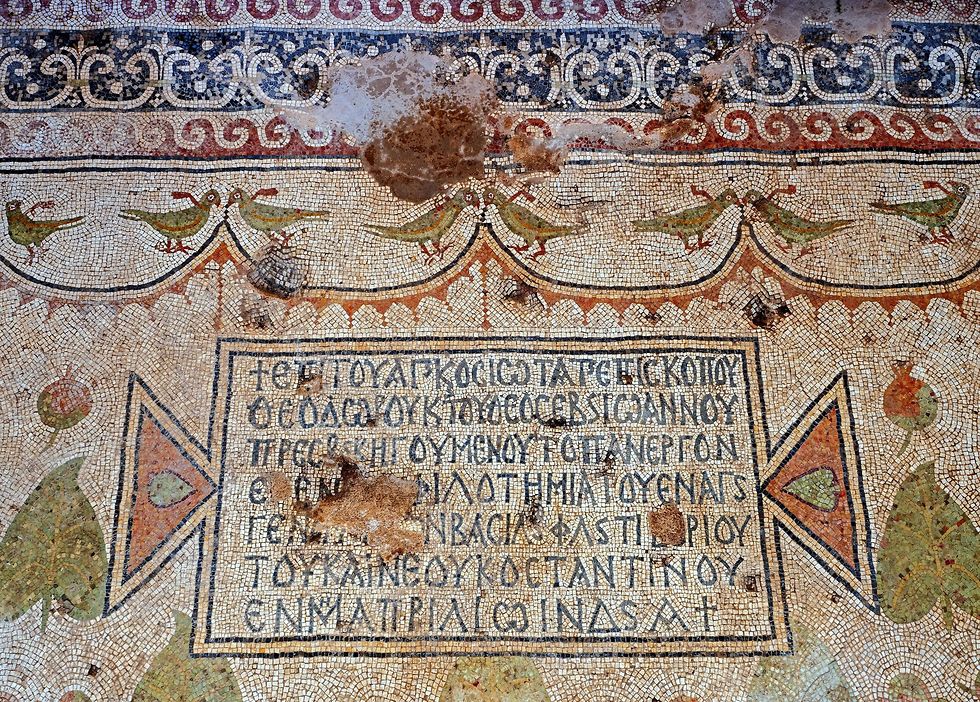
The elaborate design of the church, including a lattice marble chancel, calcite flowstone baptismal and floor mosaic depicting an eagle, a symbol of the Byzantine Empire, shows the site’s notable funding and significance.
The excavation’s director, Benjamin Storchan, said it showcases a phenomenon known as “imperial church building.”
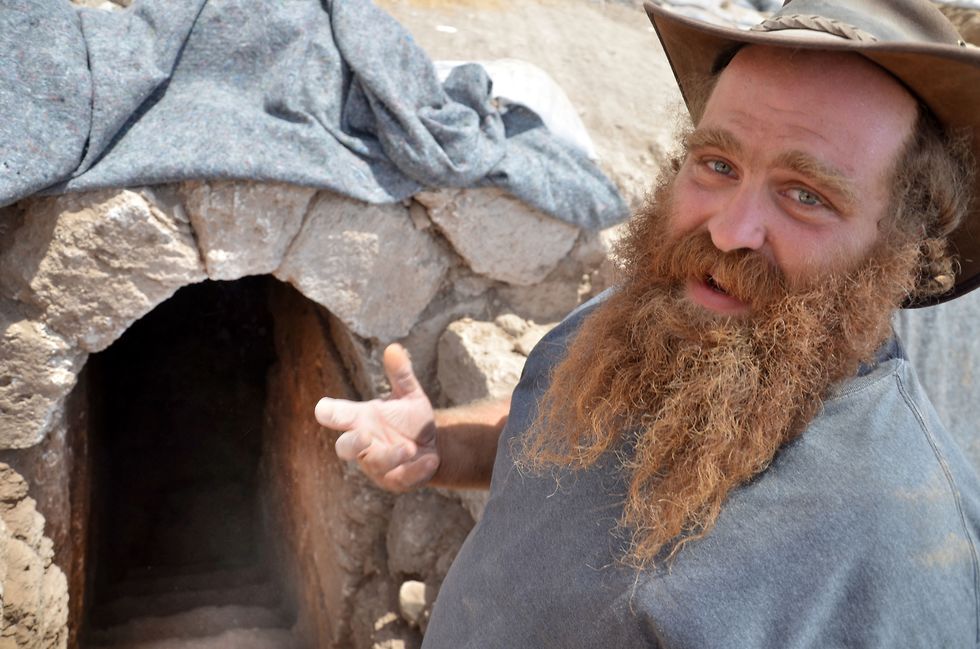
He said the empire maintained important sites and supported a tourist industry. “They took part in ensuring the development of pilgrimage routes,” he said.
"The crypt, which is one of the few preserved so well, is an underground space where the martyr's remains were kept. " Storchan said, "two staircases led in and out of it probably to enable pilgrims to visit."
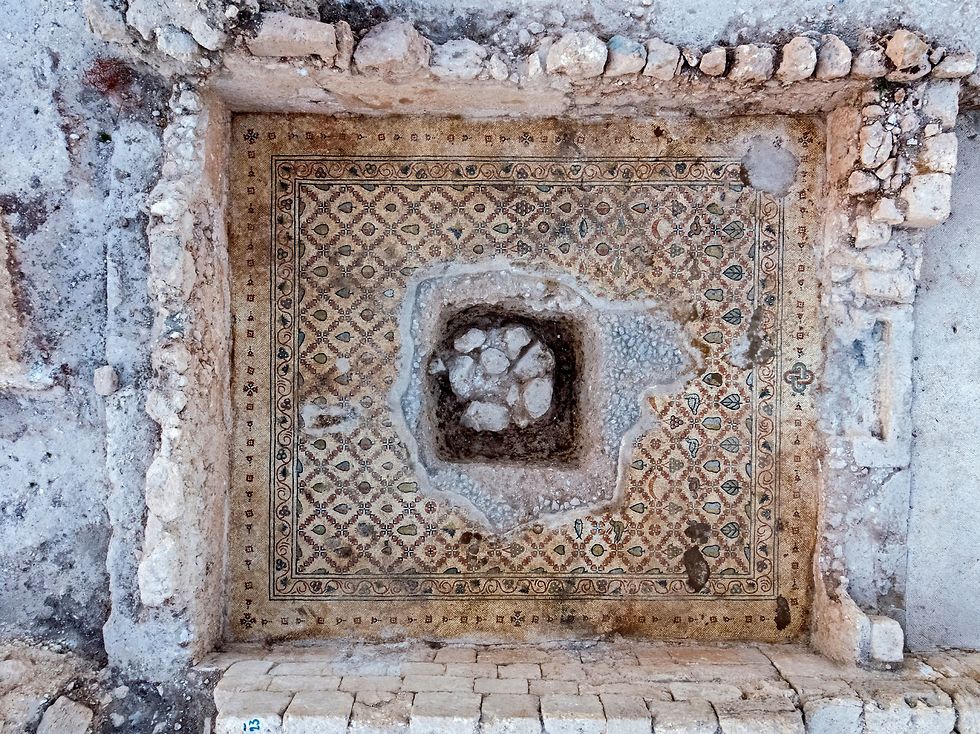
The site was discovered during construction of a new residential neighborhood.
It covers 1,500 square meters (16,000 square feet) and includes a large courtyard, a corridor and the basilica-style church.
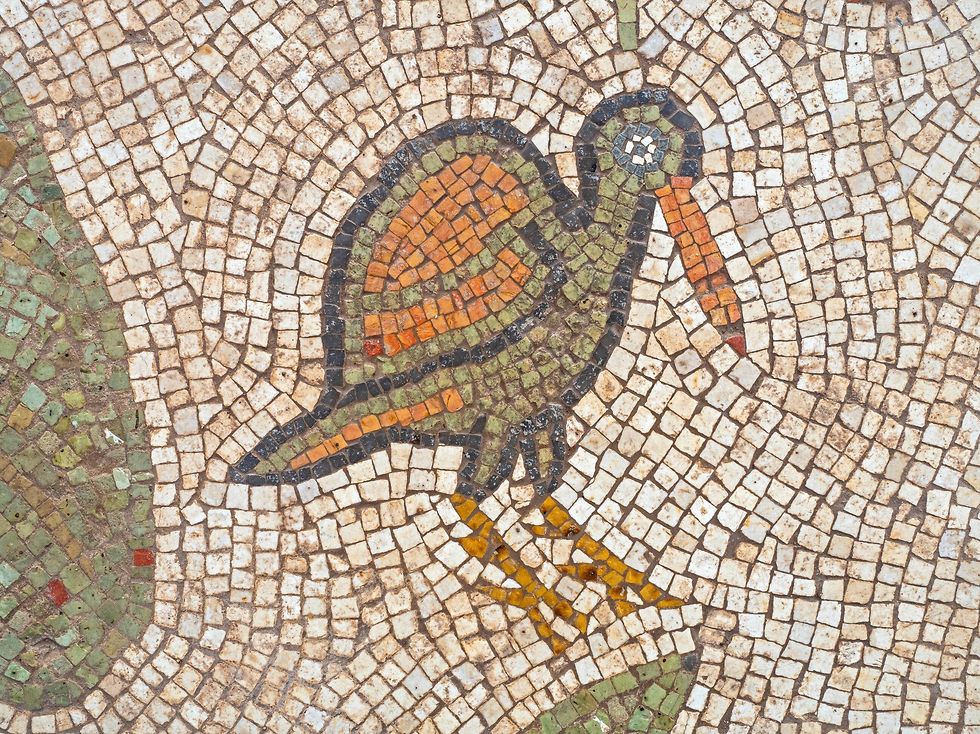
Thousands of artifacts were found, including what appears to be the most complete collection of Byzantine glass windows and lanterns ever found in one excavation site.
Following the collapse of the Byzantine Empire, the church entrances were sealed shut with large stones which excavators opened to find glass lamps, mosaics and a piece of the vault where the unknown martyr was buried.










